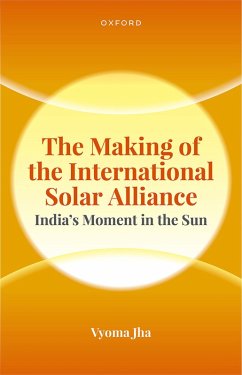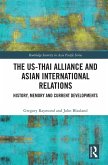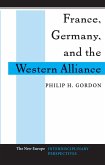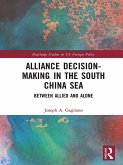This book is the first empirical account on the making of the International Solar Alliance (ISA). Announced jointly by India and France on the first day of the Paris climate talks in 2015, the ISA was conceived as a coalition of 'solar-rich' countries located between the Tropic of Cancer and the Tropic of Capricorn for optimal absorption of the sun's rays. Crucially, these 'solar-rich' countries are developing countries that witness almost three hundred sunny days in a year but face major gaps in the deployment of solar energy. In less than two years, the ISA?led by India and backed primarily by developing countries?became a legal entity. With no perceivable competitive advantage in solar manufacturing or technologies, what explains India's relative success in bringing together countries to form a new international organization focused on solar energy? Why did India insist on a treaty structure for the ISA? What are the transaction costs of bringing the 'solar rich' countries vis-?-vis the 'solar poor' countries on board? What was the role of France in the treaty-making process? Responding to these questions, the book draws on the political economy approach to analyse the motivations for India to steer a new treaty-based international organization. It presents the empirical evidence and arguments using three frames: process, politics, and players. Ultimately, the book illustrates a new kind of Indian economic diplomacy, making the ISA the first deliberate instrument of India's foreign policy on climate change and energy.
Dieser Download kann aus rechtlichen Gründen nur mit Rechnungsadresse in A, B, BG, CY, CZ, D, DK, EW, E, FIN, F, GR, HR, H, IRL, I, LT, L, LR, M, NL, PL, P, R, S, SLO, SK ausgeliefert werden.









